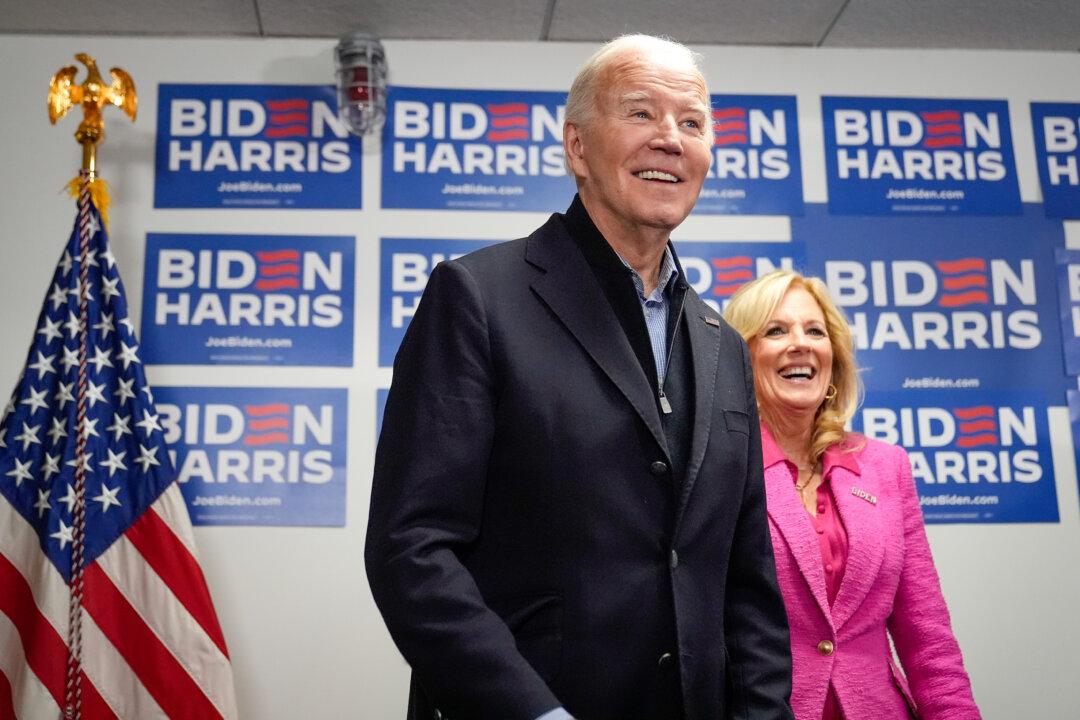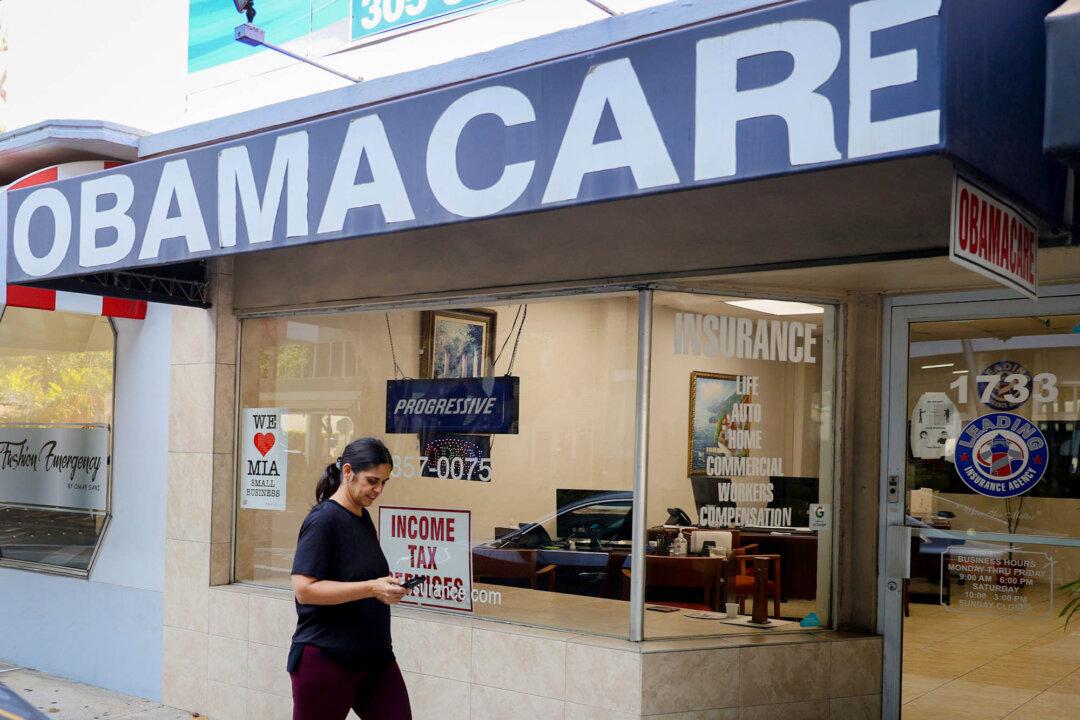COLUMBIA, S.C.—South Carolina, as expected, delivered a rousing victory to President Joe Biden in the nation’s first official Democratic primary election.
The incumbent president won 96 percent of the vote on Feb. 3 with 75 percent of votes counted. The president faced only token opposition from Rep. Dean Phillips (D-Minn.) and author Marianne Williamson, who each gained about 2 percent of the vote.






